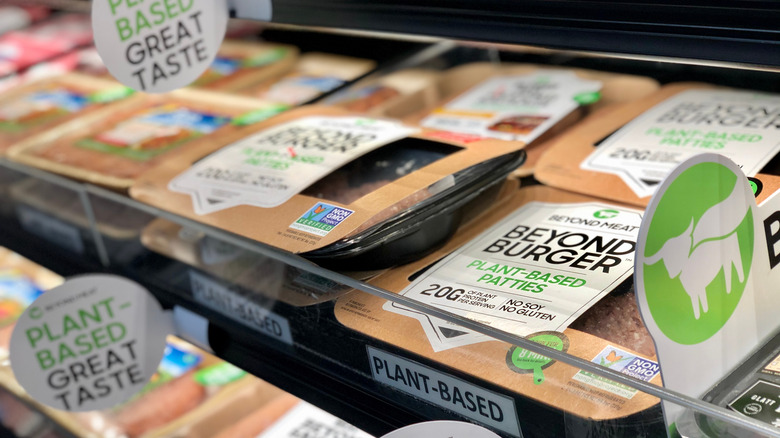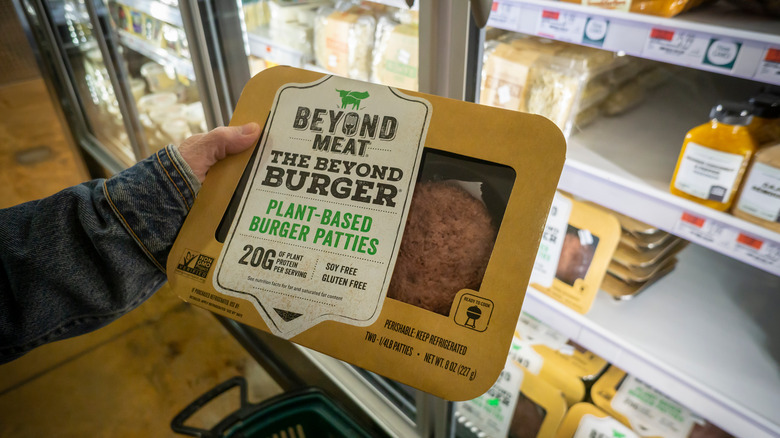Why Beyond Meat Could Suffer After Its Latest Earning Report
Maybe you ordered an Impossible Whopper last year and liked it. Or perhaps you prefer Quorn nuggets over chicken because regular tenders give your heartburn. There might even be a pack of soy-based sausages sitting in your refrigerator right now. According to the Factory Farming Awareness Coalition, plant-based food sales saw an 11% increase in the U.S. market from 2018 to 2019, raking in $4.5 billion. But judging by recent data, it looks like the age of plant-based meat alternatives might be on its way out.
Earlier this week, McDonald's pulled its McPlant burger from menus in light of dwindling customer demand for the product — causing Beyond Meat shares to fall by 6%, per CNBC. The McPlant burger would have featured a plant-based patty exclusively created in partnership with Beyond for McDonald's. In January, the fast-food chain began test-serving the McPlant burger at 600 select locations in the San Francisco Bay and Dallas-Fort Worth areas. This menu pull comes after the three-year partnership McDonald's announced with Beyond in 2021. In fact, this year alone, Beyond's stock has devalued by 53%, via the news outlet. Beyond Meat partnered with PepsiCo this year to make Beyond Meat Jerky — which, according to the brand's Q2 report, is performing very well commercially but still not reaching PepsiCo's high initial sales expectation. Now, plant-based giant Beyond Meat published its Q2 earnings, and the numbers might have many veggie-eaters turning their heads.
Plant-based meats might be falling out of favor
The report, via FoodNavigator U.S.A., demonstrated a 1.6% decline in year-over-year sales — a $97.1 million net loss on total sales of $147 million. Beyond Meat also reportedly slashed 4% of its workforce. Still, CEO Ethan Brown remains optimistic about Beyond's long-term future. "I believe the rise of plant-based meats to a prominent role in the global diet is inevitable," says Brown. "[But] we recognize progress is taking longer than expected." Brown also blames the emergence of other plant-based brands for making the meat alternative market "disorganized and disjointed as a category."
Financial analysts at Bernstein don't seem to share Brown's confidence. Due to food inflation and "broader economic slowdown," it says via the news outlet, today's consumers are opting for cheaper meats over pricier plant-based items. Bernstein calls Beyond's future capital potential "murky."
Beyond Meat might not be the only alternative brand experiencing these market trends. Earlier this year, nutrition company Kerry conducted a study that found that plant-based meat alternatives fall flat with consumers for not delivering on the taste and mouthfeel of the real thing, via Refrigerated & Frozen Foods. Some brands, like this startup by former UC Berkeley students, are designing their vegan meats to recreate the sensory experience of meat-eating (via Indie Bio). But, will different products or adjusting pricing — by Beyond Meat or any other brand — be enough to give meat alternatives a lasting place in the market?

